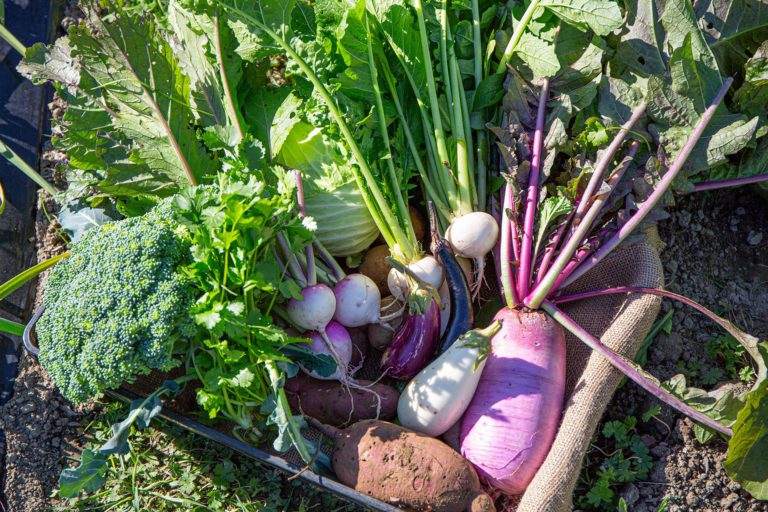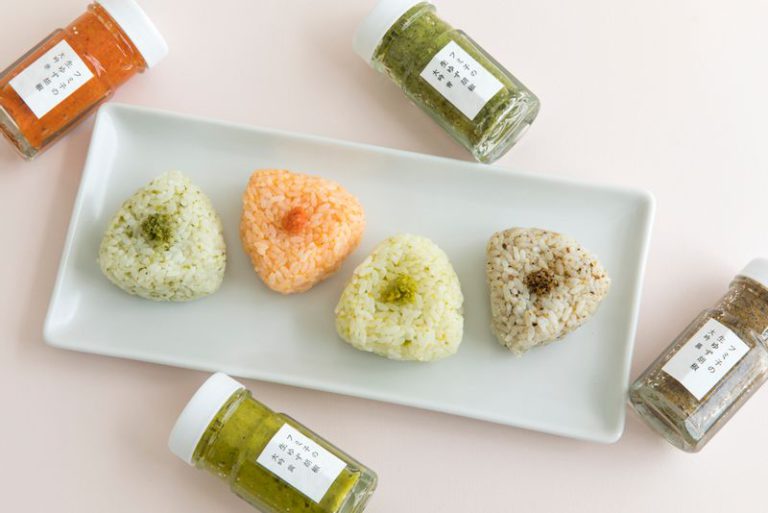Honey and Cheese Created in Harmony with Nature
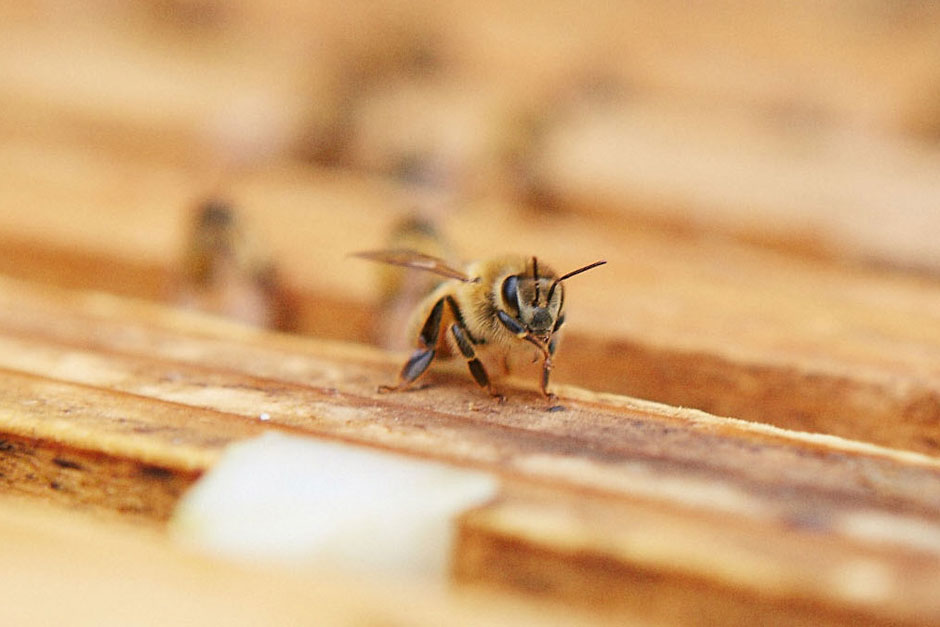
Let us take a journey that will bring us into contact with craftsmen who strive to work together with nature to create their products; a journey that will lead us to some incredible food that we didn’t know about before.
Veterans of migratory beekeeping for more than 100 years, over four generations
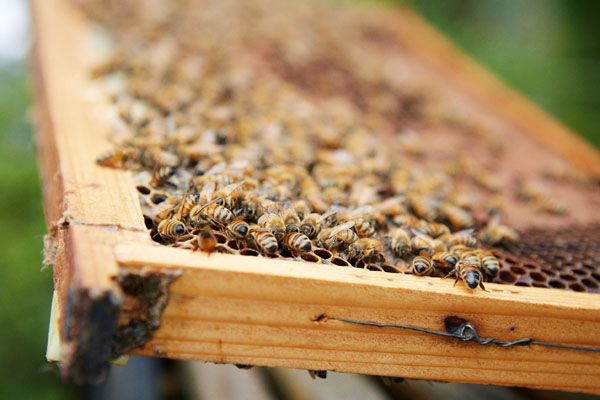
We paid a visit to Kondo Honey Factory, a long-established bee yard that has been in business on Kunisaki Peninsula in the northeast of Oita Prefecture for over 100 years. Here at Kondo Honey Factory, they have long practiced a method known as “migratory beekeeping.”
Migratory beekeeping utilizes Japan’s unique geographic qualities by moving the honeybees’ hives from south to north and harvesting them in accordance with the flower blooming seasons in each region. The honey that is harvested subtly changes taste according to the different seasonal flowers in each of the regions. This method of beekeeping makes it possible to savor all the natural tastes of these different honeys that can only be harvested at certain times of year.
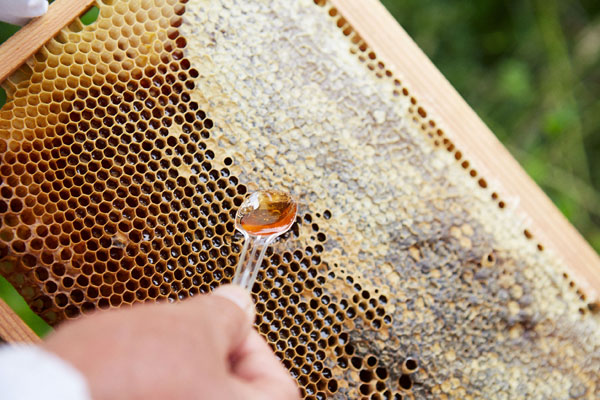
“Kunisaki Peninsula is blessed with a warm climate and abundant nature, and provides a natural environment that’s perfectly suited to beekeeping.”
We were able to share some words with Junichi Kondo, third generation owner of Kondo Honey Factory, as he stood before the bees waiting patiently through the winter for the arrival of spring and the blooming of the flowers.
Kondo Honey Factory started business in 1909, harvesting honey made from the blossom of the lotus flowers that grow in Kunisaki. Today, four generations on, they carry on the Japanese tradition of migratory beekeeping.
Kondo let us try some honey that was harvested in Hokkaido. It has a rich, refined sweetness, and a refreshing aftertaste.
“The honey harvested from hives around the country is then extracted using a centrifuge, before being heated slightly to refine it, so this freshly-harvested taste is difficult to replicate. At Kondo Honey Factory, we want people to experience something as close to the freshly-harvested taste as possible, so we process everything by hand,” explains Mr. Ando from Kondo Honey Factory.
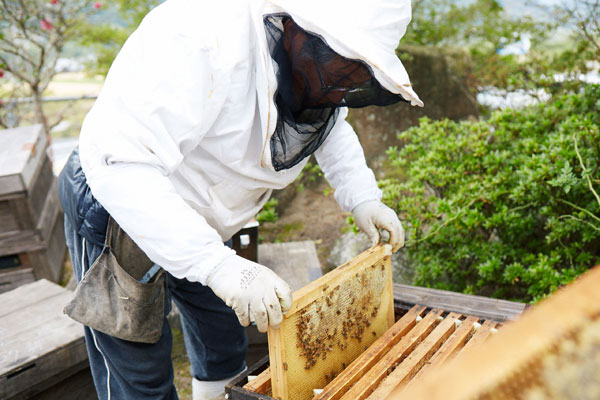
Honey refinement is a very delicate process, and applying too much heat will destroy the nutrients present in the honey. For this reason, Kondo Honey Factory carry out the whole honey-making process themselves, from hive management to bottling, observing the climate and temperature each day and making subtle adjustments that rely on human intuition and experience.
“Beehives are greatly influenced by their environment, and each day?365 days a year?we have different jobs to do. Being able to look at the weather and instantly determine what should be done is something that you can’t do without 20 years of beekeeping experience. That’s why it’s a very difficult job to keep on doing.” Ando explained to us that the number of professional beekeepers domestically is currently decreasing.
Even among the ones that still remain, beekeepers that use the traditional migratory beekeeping method, which is so greatly influenced by the natural environment, are particularly scarce.
Like the delicate taste of honey, bees themselves are also extremely sensitive to hot and cold weather, as well as to environmental factors introduced by humans, such as pesticides. If their environment is wrong, bees will die instantly. The people at Kondo Bee Factory spend their days traveling together with the bees from south to north in search of seasonal blossoming flowers, while carefully observing the environment the bees are kept in and paying close attention to them and their honey.
Kondo Honey Factory’s plans for the next 100 years
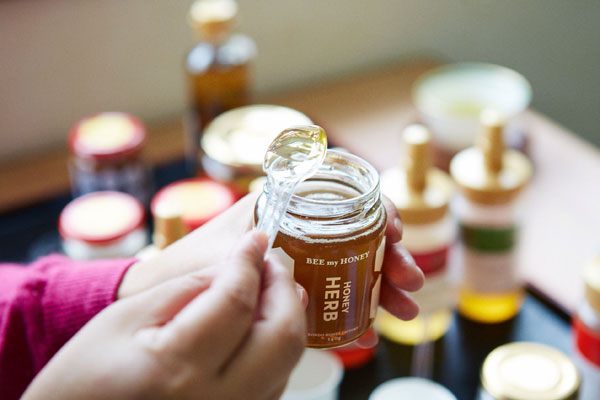
With over 100 years of history behind them, to this day Kondo Honey Factory carry on practicing the traditional migratory method of beekeeping. At the same time, though, they are also planning new initiatives for the next 100 years in their history.
One of these, created with the goal of helping consumers to enjoy honey more, is a new brand known as “BEE my HONEY.” Created around the core concept of “varied, enjoyable food,” its aim is to provide new ways to enjoy honey, through products such as “Salt Honey” and “Pepper Honey”?seasonings that will add new flavor to people’s everyday diets.
Over the next 100 years, Kondo Honey Factory hope to create new ways for consumers to experience honey, while at the same time honoring tradition. These initiatives will also provide us with new opportunities to understand the importance of food that is created in harmony with nature.
Creating the finest quality mozzarella together with the springs of Yufuin
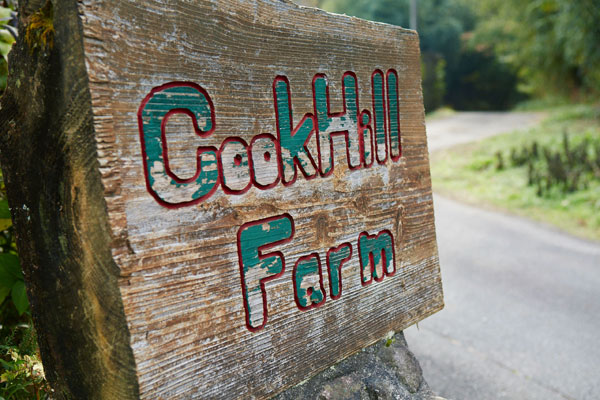
Today, Oita’s hot spring town of Yufuin is a popular international tourist destination. Great care has been taken to preserve the traditional feel of the town, and with its wide selection of long-running, highly service-oriented ryokan inns, it is one of the most famous health resort areas in Kyushu.
In the mountains not far from the center of Yufuin works a craftsman dedicated to the creation of fine cheese: Shinri Kamiura, owner of Cook Hill Farm.
Born and raised in Tokyo, Kamiura was working as a chef when he fell in love with cheese and decided to become a cheese craftsman.
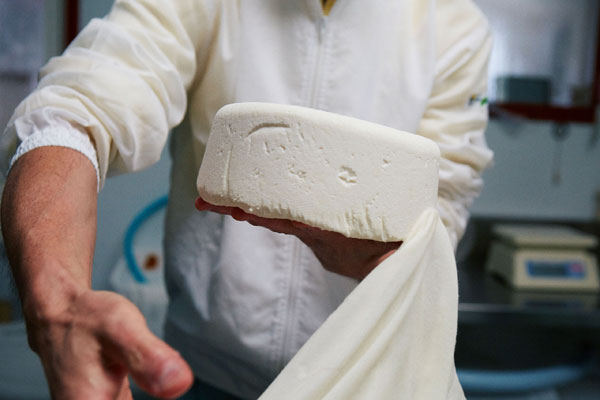
Cook Hill Farm’s products range from matured cheese to fresh cheese, cream cheese, fromage, and feta. According to Kamiura, the springs in Mount Yufu play an important role in the delicious taste of the cheese created at Cook Hill Farm.

It is generally said that cheese maturing rooms should have a temperature of between 8 and 12°C, and a humidity level of 85% or higher. In many factories, this is achieved mechanically, but apparently the cheese maturing room at Cook Hill Farm manages to achieve an optimal maturing environment with close to no reliance on mechanical methods. The maturing room at Cook Hill Farm is situated at around the same surface elevation as the springs right by the workshop, and the water from them seeps through the wall of the room. This spring water maintains the right temperature and humidity, creating a natural maturing room.
What’s more, research by Beppu University has found that the soil in the region contains the microbes necessary for the fermentation and maturing process, meaning that Yufuin provides just the right environment for creating a truly unique local cheese.
“Japan has a long cultural history of fermented foods, perhaps most famously miso. Cheese is also a fermented food. I think it’s fair enough that Japan should have its own unique cheese culture, as should the different regions within Japan.”
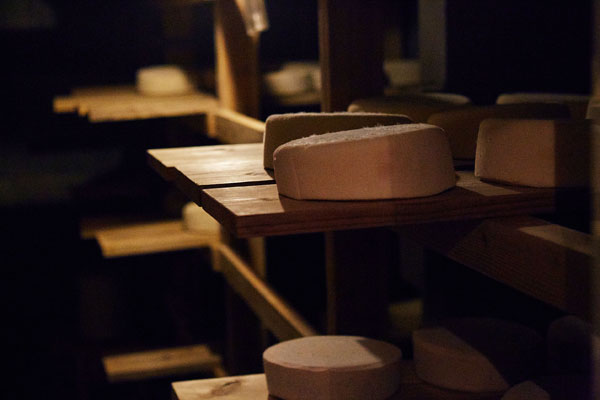
Kamiura’s fastidiousness with regards to cheese doesn’t only apply to the manufacturing process, but also the ingredients.
“At first, I acquired the milk for our cheese from milk farmers, but really I wanted to have control over everything, right down to the milk used, so now we take care of everything from the dairy cattle to wholesale by ourselves.”
Created using both locally-sourced milk and locally-sourced microbes and bacteria, it’s fair to say that Cook Hill Farm’s cheese is without doubt a one-of-a-kind cheese that could only be made in the natural environment provided by Yufuin.
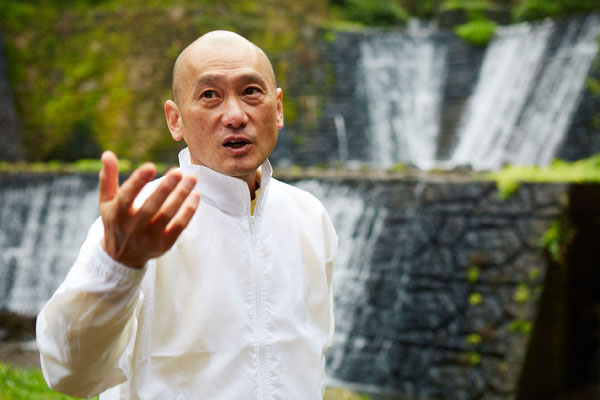
Unsuited to mass production, Kamiura’s cheese has spent a long time winning the confidence of the chefs at the renowned local Yufuin ryokan. His most famous product is his mozzarella.
When selling to local restaurants, Cook Hill Farm delivers its mozzarella cheese as curd (the fermented milk that forms the basis for mozzarella). This allows the chefs to offer mozzarella cheese freshly produced in their kitchens with a taste that store-bought mozzarella simply cannot match.
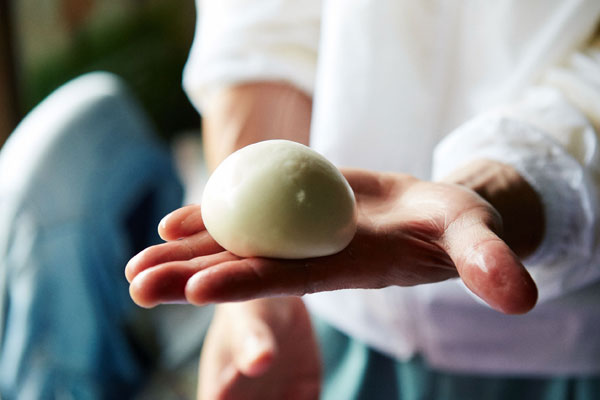
This high-quality mozzarella cheese, reared in the natural environment that Yufuin offers, is born from Kamiura’s firmly-rooted philosophy. He takes responsibility for providing a guaranteed quality and quantity, and handles all aspects of the process himself, from production of the milk to wholesale.
Japan’s food culture is built on a foundation of coexistence with nature. As long as there continues to be abundant nature across Japan, the time, effort and passion of craftsmen inspired by it will continue to live on, and the enjoyment of food will continue to spread infinitely.

